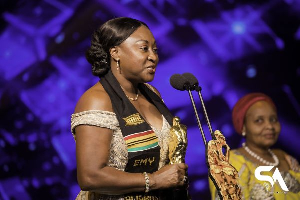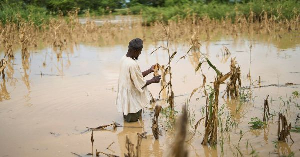Accra, March 22, GNA - Dr Kofi Amoah, Chief Executive Officer of Progeny Ventures, on Tuesday called on Africa governments to put their under-utilised resources together to build sustainable economy and reduce dependence on aid.
He said Africa must learn to live within its means, learn to balance its budgets and limit dependence on aid and external financial assistance. Dr Amoah was contributing to a roundtable on the topic: 93Africa: New Opportunities, New Challenges", in Accra.
It was organised by the management of Business Times Magazine, a monthly business publication, as part of activities marking the celebration of its 20th-edition.
Challenges facing Africa discussed included sanitation, entrepreneurship, innovation, business performance, information and knowledge flow and building strong infrastructural systems to boost the economy. He explained that Africa's new opportunities must be embraced with a= n African Mindset.
On policy response, Dr Amoah said Africa must adopt economic policies that would reflect realities of the society, ensure Africans work to combin= e land and other resources to produce its needs and drive a viable export sector.
He said though Africa might have been badly hit as other regions due to the recent global crisis, it had a lot of lessons to learn from past experiences.
Dr Amoah urged politicians to negotiate with traditional rulers to make land available for investors to invest in their economies for national development.
He called on young graduates to improve on their brand and packaging abilities to equip themselves for opportunities. On corruption, Prince Kofi Amoabeng, Chief Executive Officer of UT Bank, said it had become entrenched and must be tackled strongly, adding "Africa needs strong public institutions". He noted that if Ghana could reduce corruption by 50 per cent she would be an economic haven.
On revenue mobilisation, Prince Amoabeng said institutions and system= s must work efficiently for African countries to raise the needed resources t= o develop, otherwise Africa would remain poor if it did not fix its tax systems. He pointed out that the structural and institutional deficiencies of African countries continued to hamper their progress and limit their abilit= y to take advantage of available opportunities.
"Financial intermediation must be deepened to reflect the standards= of a modern economy, and make Africa a viable consumer and investment destination," he added.
Prince Amoabeng advocated for a 93national vision plan" for all political parties for implementation when voted into power for national development.
He urged African Governments to empower their nationals to take up businesses in their countries rather than 93leaving them for only foreigners". Mrs Edith Dankwa, Executive Director, Business and Financial Times, said new opportunities created by most challenges in the past had helped to achieve economic freedom and growth.
"It is imperative for entrepreneurs to periodically come together t= o brainstorm on issues affecting their operations. Such for would expose entrepreneurs to new ways of doing things and equip them with the needed tools towards national development", she said. 22 March 11
--0016e6de14e42dcf7a049f17b08a
General News of Tuesday, 22 March 2011
Source: GNA












